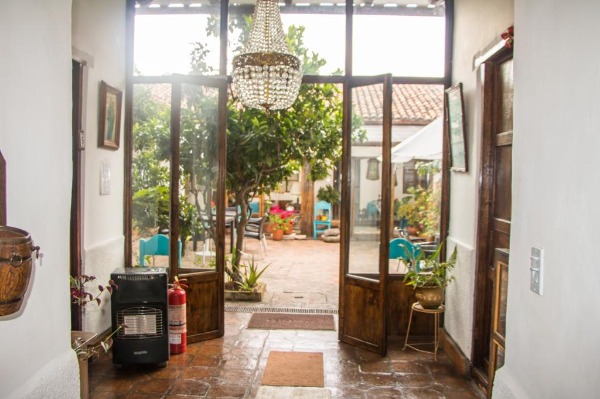CUENCA DIGESTAdvocates for pedestrian and cyclist rights push for tighter law enforcement; health officials warn of high UV levels
A group representing the rights of pedestrians and cyclists is mounting a campaign for tighter enforcement of traffic laws.
According Luis Arpi, an advocate for cyclists, the streets are not safe for anybody except those traveling in cars and buses. “We believe the situation is deteriorating and we are bringing this to the attention of th e police, the province and the city of Cuenca,” he says. “We have laws on the books to protect our rights but they are not enforced.”
e police, the province and the city of Cuenca,” he says. “We have laws on the books to protect our rights but they are not enforced.”
Luis Sanchez, who commutes to work by bicycle and says he cannot afford another means of transportation, agrees. “Something needs to be done, and soon. I feel like I’m invisible to most car and bus drivers even when I’m following all the laws. I believe that it is a form of discrimination against the poor that there is no enforcement.”
Cuenca city councilwoman Maria Cecilia Alvarado, chairman of the Municipal Bureau of Mobility, says that Arpi and Sanchez are right and that her office is working for solutions. Part of the problem, she says, is poor signage and a lack of education for drivers. "This is a long term project where we must all work together: citizens, pedestrians and drivers.”
OFFICIALS WARN RESIDENTS AGAINST HIGH LEVELS OF UV RAYS
Ecuador’s ministry of health is advising residents to take precautions against high doses of ultra-violet (UV) rays, especially in March and April. This is the period, the ministry says, when the sun’s rays impact the earth most directly. High levels of exposure to UV rays are a primary cause of skin cancer.
“The UV index in much of the country is registering from 12 to 17 in most of the country., when 11 is considered high. This is in the danger range and we urge people to wear hats, protective closing and to apply sunscreen,” says Juan Moreno of the health ministry. He adds that danger is always elevated in Ecuador due to its location on the equator and because much of the country is at high elevations.
Morena says the depletion of the atmospheric ozone layer and global warming are contributing to higher UV readings.
In Cuenca, several schools have decided to hold physical education classes indoors to avoid exposure to students.
The health ministry offers several suggestions to reduce UV exposure, including:
– Wear sunscreen and re-apply it frequently, according to skin type
– Avoid outdoor activities between 10 a.m. and 4 p.m.
– Use head protection; wide-brimmed hats are better than caps
– Avoid tanning salons
– Have periodic medical exams that can detect skin cancer
FEBRUARY HAIL STORMS CAUSE $5 MILLION IN DAMAGE TO CROPS
Two hail storms within eight days in late February have caused more than $5 million damage to crops in San Joaquin, just west of Cuenca. Azuay Province agriculture officials estimated that loses were primarily to cabbage, spinach, carrot and broccoli production.
In addition to crop losses, officials said storm damage will mean less work for more than 5,000 field workers in San Joaquin. Most of the produce is shipped to Guayas and El Oro Provinces, east of Cuenca, with the rest being sold in Azuay.
The two thunderstorms that affected the area Feb. 19 and Feb. 27, were the most intense in more than a year, according to the Cuenca weather station spokesman. “These were very severe storms. We would see one of these every two or three years on average so it is extremely unusual to have two within a few days.”
The official rainfall from the storms was 2.2 inches on Feb. 19 and 3.15 on Feb. 27. Officials say that Cuenca still needs more rain to catch up from the drought, the worst in almost 50 years, that affected the area from July to December of last year.
ROTARY CLUB RAFFLE COLLECTS FUNDING FOR CLEFT LIP AND PALATE SURGERY
Cuenca's Heritage Rotary Club raised $23,500 in a Mar. 6 raffle supporting a program of reconstructive surgeries for cleft lip and palate. The surgeries are conducted at Cuenca’s Military Hospital on Av. 12 de Abril.
According to Napoleon Reinoso, Rotary Club President, 235 tickets were sold in a raffle of new Chevrolet.
The cleft lip and palate program is supported by surgeons Tito Narvaez, Johanna Narvaez Oswaldo Solis, Santiago Lituma and Claudio Ortega, and provides free surgery for low-income people, mostly children.
In addition to its own fund-raising efforts, the Rotary Club has asked the Cuenca city government to provide permanent funding for the project.
Photo caption: a Cuenca mime makes the case for pedestrian rights.





















